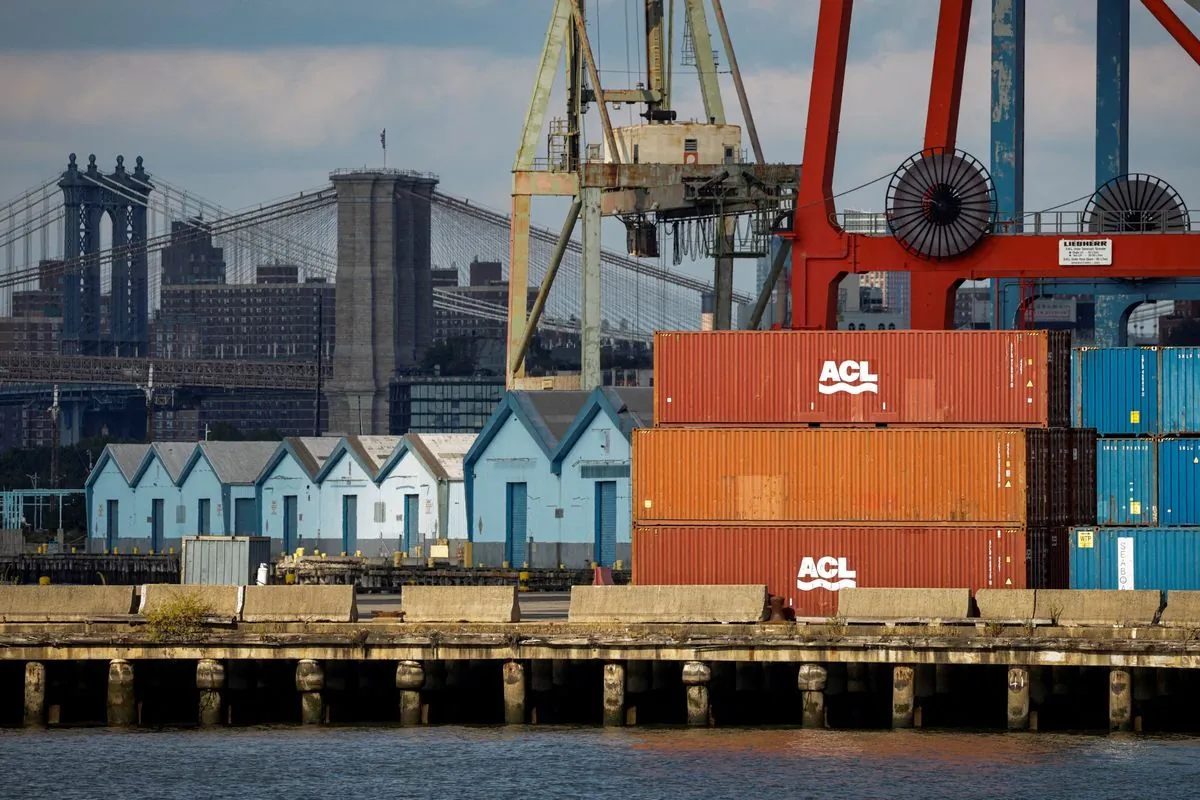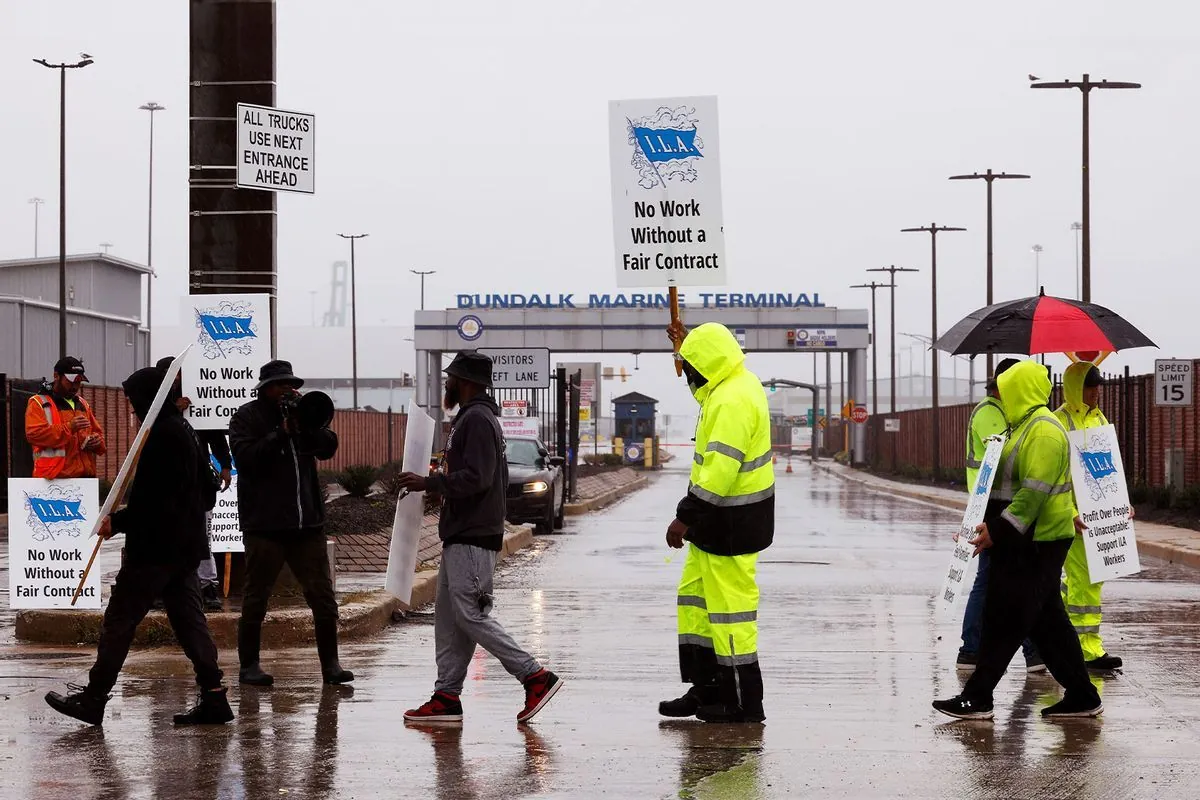U.S. Port Strike Threatens Global Trade, Tests Supply Chain Resilience
Longshoremen strike at major U.S. ports disrupts half of oceanic imports. The action challenges recent supply chain improvements and highlights persistent vulnerabilities in global trade networks.

On October 1, 2024, a significant labor dispute erupted as longshoremen at major U.S. East and Gulf Coast ports initiated a strike, potentially disrupting approximately half of the nation's oceanic imports. This action comes at a critical juncture, testing the resilience of recently stabilized global supply chains and highlighting the persistent vulnerabilities in international trade networks.
The International Longshoremen's Association, an organization with roots dating back to 1892, is at the forefront of this labor action. The strike affects crucial ports such as Norfolk and Houston, impacting the flow of essential goods including automobiles, produce, and various commodities. The Port of Houston, notably the largest U.S. port for waterborne tonnage, stands as a key focal point in this dispute.
This labor stoppage occurs against the backdrop of recent efforts to strengthen and diversify supply chains. In the wake of pandemic-related disruptions, both government and corporate entities have invested in onshoring, nearshoring, and friendshoring initiatives. However, the current situation underscores the enduring importance of global interconnectivity in trade.
Maritime shipping had largely stabilized by early 2023, following the tumultuous period of pandemic-induced supply chain pressures. The industry demonstrated resilience in the face of various challenges, including a significant boat crash near Baltimore in May 2024 and ongoing geopolitical tensions affecting key shipping routes like the Red Sea.

The potential economic impact of this strike is substantial. Analysts from JPMorgan estimate that a prolonged work stoppage could cost the U.S. economy up to $5 billion per day. Moreover, each week of inactivity risks creating a month-long backlog, further exacerbating the situation.
The dispute centers not only on wage increases but also on the contentious issue of port automation. U.S. ports generally lag behind their global counterparts in this regard. For instance, the Port of Rotterdam, Europe's largest seaport, and Singapore's port, the world's busiest transshipment hub, rely heavily on robotic systems. The first automated container terminal opened in Rotterdam as early as 1993, highlighting the long-standing trend towards automation in the industry.
"We stand firm in our commitment to fair wages and job security. Automation threatens the livelihoods of thousands of hardworking Americans."
The global shipping industry, accounting for approximately 90% of world trade, has undergone significant transformations since the advent of containerization in the 1950s. The concept of "just-in-time" inventory management has greatly influenced global shipping practices, making efficient port operations crucial to international commerce.
President Joe Biden faces a delicate political situation with this strike. While he has the authority to intervene and keep ports operational, such action could alienate labor groups, a key constituency in the upcoming presidential election. This dilemma echoes a similar situation in 2022 when Biden and Congress intervened to resolve a rail strike, drawing criticism from labor organizations.
The strike serves as a stark reminder of the intricate balance in global trade networks. Despite efforts to increase domestic production in sectors like semiconductors and renewable energy, as championed by the Biden administration, the U.S. economy remains deeply intertwined with global supply chains. Even domestically manufactured goods often rely on components sourced from around the world.
As the situation unfolds, it underscores the ongoing challenges in harmonizing labor interests, technological advancements, and the demands of global commerce. The resolution of this dispute will likely have far-reaching implications for the future of U.S. port operations and their role in the increasingly complex landscape of international trade.


































